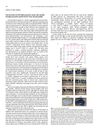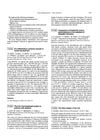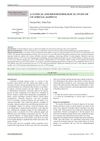Search
for
Sort by
Research
210-224 / 224 resultsresearch Expression of Mu-Opiate Receptor in Human Epidermis and Keratinocytes
μ-opiate receptors in skin cells may affect skin health and healing.
research Regulation of the Wound Healing Response During Aging
Aging slows wound healing due to weaker cells and immune response.
research Platelet-Rich Plasma in Female Androgenic Alopecia: A Comprehensive Systematic Review and Meta-Analysis
PRP shows promise for treating female hair loss but needs more research.

research Proteomics as a Tool to Improve Novel Insights into Skin Diseases: What We Know and Where We Should Be Going
Proteomics combined with other technologies can lead to a better understanding of skin diseases.

research Pro-Inflammatory Cytokine Cascade in Human Plucked Hair
Anti-IL-1 treatments might help with certain types of hair loss in people with high inflammation.

research Induction of Insulin-Like Growth Factor-I by Cepharanthine from Dermal Papilla Cells: A Novel Potential Pathway for Hair Growth Stimulation
Cepharanthine may help hair growth by increasing IGF-I in scalp cells.

research Narrow-Band Red LED Light Promotes Mouse Hair Growth Through Paracrine Growth Factors From Dermal Papilla
Red LED light helps mouse hair grow by increasing growth factors from skin cells.

research The Liver Monooxygenase System in Patients with Alopecia
Alopecia patients have a less active liver monoxygenase system, which can be treated with photochemotherapy and system inducers.

research Comparison of Finasteride Versus Spironolactone in the Treatment of Idiopathic Hirsutism
Spironolactone is more effective than finasteride in treating excessive hair growth in women.

research Skin Deposition and Permeation of Finasteride In Vitro: Effects of Propylene Glycol, Ethanol, and Sodium Lauryl Sulfate
Propylene glycol and ethanol increase finasteride skin absorption, sodium lauryl sulfate doesn't.

research A Clinical and Histopathological Study of Cicatricial Alopecia
Lichen planopilaris is the most common type of scarring hair loss observed, with a variety of symptoms and tissue changes.

research Significance of Psychosomatic Factors in the Etiopathogenesis of Alopecia Areata
Psychological factors play a significant role in developing alopecia areata.

research Co-Editors' Messages
Inflammation linked to the immune response may play a role in causing various types of hair loss.